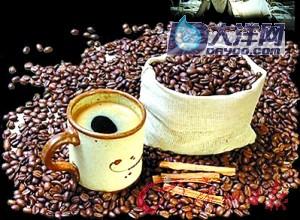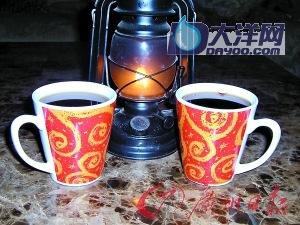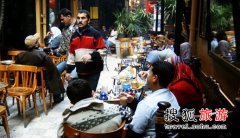Ethiopian coffee
Ethiopia in East Africa means "land inhabited by people tanned by the sun" in ancient Greek. Ethiopia's unique cultural tradition, spectacular scenery, pleasant climate, rich animal and plant resources, important places of interest, hospitality and friendly people make it one of the major tourist destinations in Africa.

The name Coffee comes from kaffa in Ethiopia.
Do you know? The root of coffee is in Ethiopia. It is said that the word coffee in English also comes from the place name "Kaffa" in Ethiopia. Legend has it that around 900 AD, when a shepherd in the Cafa region of Ethiopia was grazing in the mountains, he found that the sheep were competing for a kind of red berries. After eating, the sheep were excited and reacted abnormally. The shepherd was scared all night because he thought his sheep had eaten some harmful food. Who knew the sheep were safe and sound the next day. This unexpected discovery prompted shepherds to collect the wild fruit and boil juice to quench their thirst. He felt that the fruit juice was mellow and excited after drinking it. So he began to plant this plant, which led to the development of large-scale coffee cultivation, and the name of coffee evolved from the curry method. After that, coffee spread from Ethiopia to the world.
Coffee is as pure as a thoroughbred.
Ethiopia grows coffee in different climatic zones, so it has more than 140 farm varieties, and fresh coffee is produced all the year round. The quality of Ethiopian coffee varies according to different elevations and regional ecological environment. The Harar coffee in the southeast highland is a typical Muha coffee with strong aroma; the coffee produced in southwest Wollega has a rich fruity flavor; Limu coffee has wine and spice flavor; Sidamo coffee is mild, full-bodied and sour, while Yirgacheffee coffee has floral flavor. Taste Yega Xuefei, chocolate and sour taste more intense, like lemon flying, with a trance of flowers.

Interestingly, Ethiopians also put pictures of horses on the coffee package to show the purity of the coffee. It is said that in the era when horses were the main means of transportation, Ethiopians were proud that Ethiopia had the best thoroughbred horses in the world. Now they give this pride to Ethiopian coffee, "high-quality coffee should be as pure as thoroughbred horses". As a result of adhering to this concept, the taste of coffee here is still so mellow.
Coffee drinking ceremony is well-known.
In traditional Ethiopian families, coffee is drunk two or three times a day, with a variety of drinking rituals or rituals. In the evening, the whole family sat on the ground around a small charcoal stove. The ground around the charcoal stove is covered with specially cut or bought grass. This is a special grass specially used for coffee rituals. When the small charcoal stove is lit, it is necessary to specially pick out a few pieces of white charcoal with thick smoke, shake it in every corner of the house, and then put it on the edge of the stove and let it burn out or extinguish itself. In this way, for a period of time, the whole house or courtyard is shrouded in smoke.
It is usually a teenage girl who prepares coffee for everyone at home. She first grabbed a handful of light green raw coffee beans, put them in a small iron pot on the charcoal stove, scooped up clean water, and scrubbed them with both hands. Then roast the coffee beans with a small wooden shovel, and soon the coffee beans begin to turn dark black and emit an attractive fragrance. When the girl thought it was time for the fire, she picked up the handle of the iron pot and shook the smoky coffee beans and sent them to everyone for everyone to smell. After everyone nodded and said yes, she poured the cooked beans into a small mortar and pounded them with a big iron bar nearly one meter long and as thick as the child's arm. Soon, the handful of beans was mashed into powder.
The girl scraped out the powder little by little with a small wooden spoon and poured it into a clay pot with a thin neck, bulging belly and big ears, added clean water, and boiled it on a small stove. The water soon boiled and boiled for a while, and the fragrance overflowed. The girl placed several porcelain cups the size of a wine cup on a small wooden box, then picked up the big ears of the coffee pot and filled each cup one by one, then put down the pot and toasted the people sitting around with both hands. This process usually lasts 30 minutes.
Warm reminder: Chinese people can drink up to three drinks.
However, I would like to remind you that Ethiopian coffee is like Jingyanggang's good wine in the Water margin. That is to say, most Chinese people will definitely feel refreshed after one drink. If they drink two drinks, they will not be able to sleep in the middle of the night. If they drink three drinks, they will not feel sleepy at all that night plus the whole day of the next day. More than three? The consequences would be unimaginable. The coffee in this country is absolutely "green coffee" and has not used any chemical fertilizers or pesticides. As long as you are not afraid of insomnia, please rest assured to enjoy it.
China Coffee Trading Network: www.gafei.com
Important Notice :
前街咖啡 FrontStreet Coffee has moved to new addredd:
FrontStreet Coffee Address: 315,Donghua East Road,GuangZhou
Tel:020 38364473
- Prev

Perceptual Coffee Secret language: an Encyclopedia that can never be finished
The coffee industry is divided into the upper, middle and lower reaches, while the upstream is mainly grown in coffee beans from places of origin, such as South America, while in the middle reaches are export, processing, wholesale and other industries; and downstream is retail, such as restaurants and coffee shops. Coffee is also one of the main commodities traded in futures in the world, and it is very active in the futures market. Nguyen Sen Yang pointed out that the coffee industry in Hong Kong is mainly in the middle and lower reaches, which has been developed in recent years.
- Next

"Mother of the City" Cairo: authentic life begins with coffee
Summary: Cairo, the capital of Egypt, across the Nile, majestic and spectacular, is the political, economic and commercial center of the entire Middle East. Taste, a strong smell of coffee mixed with some spices can not help but sigh, here is the taste of Cairo. Summary of Western-style Cafe for Foreign use: authentic Cafe Life in Cairo
Related
- How did the Salvadoran coffee industry develop in Central America?
- What exactly does the golden cup extraction of coffee mean?
- The Origin of Coffee flower
- [2023 Starbucks World Earth Day] there are more meaningful things besides free Starbucks coffee!
- What kind of coffee is there in Spain? 9 Flavors of Spanish Coffee
- Aromatic African coffee| Kenya's coffee culture and historical production area
- Liberica Coffee Bean knowledge: the characteristics of Liberian Coffee beans of the three original species of Coffee beans
- The origin and formula of Spanish latte introduces the taste characteristics of Bombon coffee in Valencia, Spain.
- How to adjust the solution of over-extracted coffee
- What is the tasting period of coffee beans? What is the period of coffee and beans? How should coffee wake up and raise beans?

